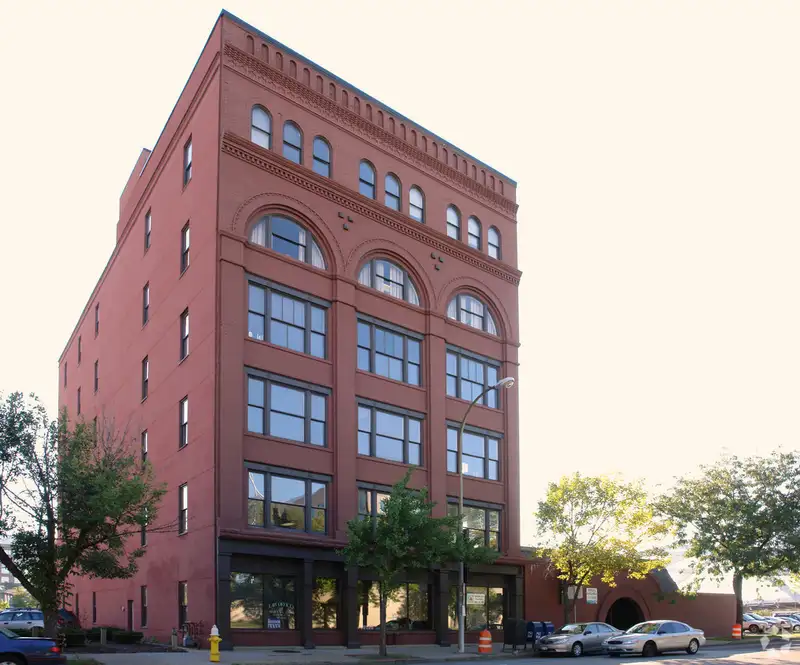Investment Info:
Office Space commercial investment investment.
Purchase price: $2,750,000
Back in 2023, we bought this high rise office building in Downtown Rochester, NY. It was a 50,000 sqft building that was made up mostly of NYS government tenants.
Here are the details on the acquisition:
$2.75 Million Purchase
$2.20 Million in debt sourced through a local community bank.
We had to raise $750,000 to cover down payment, closing costs, some operating cash, and some cash set aside for tenant improvements. There was about 8000 square feet of vacancy. Partnership was structured this way with investors. 10% preferred rate of return to the investor and we split the equity 34% to the investors, 66% to us. This differed a little bit from the orginal offer, as we were offering 19% Ownership and a 9% preferred return and we actually got a soft commitment from 4 different investors.
So why did we end up taking the less advantageous deal?
1.) Our investment partner on the deal has a huge balance sheet and was willing to sign on the debt with us. Since their ownership interest was over 19%.
2.) They have a ton of experience in construction and development so we determined that the relationship would be an asset which would help us in growing our portfolio especially into larger more complex deals.
That decision ended up being a life saver because 8 months into ownership, both elevators went down at the building and we ended up needing to replace one of them... A project that ended up costing $270k+!
Because of our partners balance sheet, he was willing to loan an additional $270k of cash into the deal. We would have been screwed if we did the other deal, trying to call it from 4 investors.
Another lesson learned was to always do tenant interviews during due diligence. And ask them questions like:
1.) "How do you like it here?"
2.) "Do you need more space? Less space?"
3.) "What could be improved here?"
Upon conducting these interviews we learned that one of the NYS agencies needed more space. So we toured them through the 8000 sqft of vacant space and they ended up taking it.
Not only that, they agreed to tack that space onto their existing lease and renew everything on a brand new 15 year lease!
It took a long time to get that lease negotiated (almost a year) but once we got it signed, we brought the deal back to our bank to get a 2nd mortgage put on it for cash out purposes (the reason why this was advantageous was because we could keep our 1st on at the 5.9% interest rate we locked in at purchase)
The property just appraised for $4.1M and we got our commitment letter for $1.1M in loan proceeds which will allow us to pay our investor back 100% of their cash!
Side note. Just because you lease up a building to 100% occupancy does not mean you will get credit for all the rental income. The appraiser will take into consideration a market vacancy rate which will vary based upon asset class and location. In this case it was 7% vacancy rate. So we had to get creative to get full credit. There was about 4000 square feet of vacant space in the lower level (basement) of the building so we asked the appraiser if we could add that onto the rent roll, and he said yes. So we measured up that space and provided it.
Anybody that's curious about more details on this deal or anything commercial, let me know!
PS I'm super excited to deliver that 7 figure check to our investor. Because paying your investors back their invested cash is the best thing you can do, because they'll want to do more deals. And now we have a partner with a balance sheet willing to lend it on bigger and bigger deals. That wouldn't had been the case with the other deal, even though is was less advantageous at face value...
What made you interested in investing in this type of deal?
The entire investing community redlined office out after covid and we decided to take a contrarian approach and find opportunities that were overlooked and low risk.
How did you find this deal and how did you negotiate it?
We actually found this deal on Loopnet! NOBODY wanted office so it was easy to find attractive office deals. We underwrote it and it was a great buy at it's asking price. We asked for 60 days due diligence, 60 days close.
How did you finance this deal?
$2.2M from community bank and $750k from private investors.
How did you add value to the deal?
We leased up 8000 square feet of vacant space at the building with one of the already existing tenants who needed more space.
What was the outcome?
The property appraised for $4.1M and we are in the process of refinancing it now. We will be able to get all of our investors cash back at closing!
Lessons learned? Challenges?
Lessons learned is sometimes the better deal is not the one that appears better at face value. We picked up an amazing relationship with a new investor that we are excited to work with in the future.















